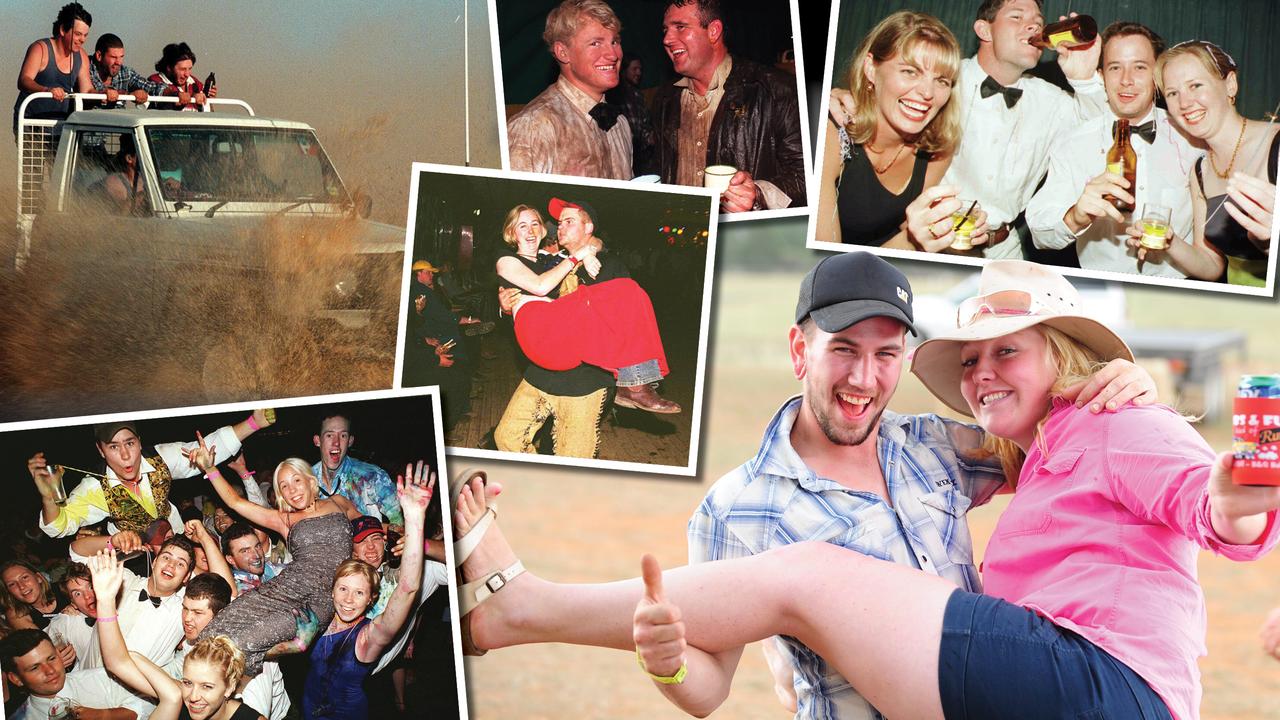How to become a farmer: Meet the young growers starting from scratch
Want to escape the rat race and start your own farm? Meet five young Australians who’ve done just that, from growing vegetables to raising pork.
Starting your own farm from the ground up, is a goal that many young producers have.
But it takes commitment, hard work, and a lot of capital, to access the land and infrastructure required to give agriculture a red hot go.
Young people setting up their own farms as first-generation producers in their own right have to think outside the box when it comes to land opportunities, such as leasing country, start-up loans, or getting creative with accessing land in unconventional ways.
Young Farmers Connect co-ordinator Joel Orchard said the high cost involved in buying large-scale properties had resulted in many first generation producers entering market garden operations, floristry farming, and smaller-scale horticulture and poultry operations.
“For younger people who don’t have a lot of capital to invest, small scale production systems are the only entry point, and we’re looking at what kind of scaffolding and support structures are needed so young people can give it a good shot, and be successful,” Mr Orchard said.
The Weekly Times takes a look at five first generation producers, hailing from all corners of the country and covering different commodities, and shares the motivation and drive behind their operations.
RHIANNON PHILLIPS, BLUE MOUNTAINS NSW – HORTICULTURE
Owner and founder of Mountains Gourmet, Rhiannon Phillips, based at the Blue Mountains, produces organic produce with a focus on educating home growers on how they can better sustain themselves with backyard produce.
Ms Phillips, after studying a Bachelor of Animal and Veterinary Bioscience, spent time working as a farm manager at another farm in the Hawksbury region.
“It was a mixed enterprise, and more of a hobby farm. It kept flooding on the river flats, and it was time to close the chapter for that farm but I still wanted to be involved in farming,” the 29-year-old said.
“I was really lucky I had a family friend who had a big paddock she wasn’t using. I asked if I could grow vegetables.”
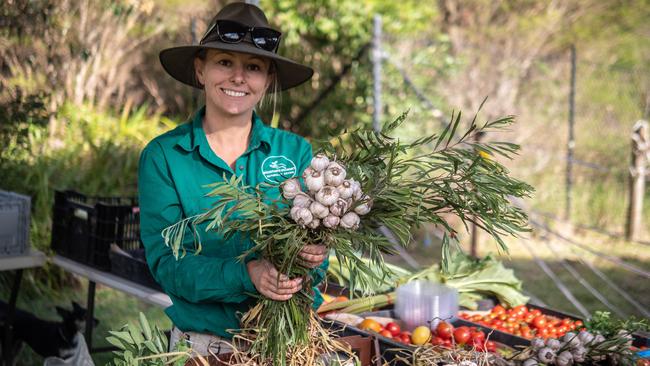
The 0.8-hectare plot has dedicated 0.2ha to a vegetable and seasonal produce plot, growing salad greens, garlic, cabbages, and in the summer chillies and tomatoes.
Mountain Gourmet supplies a number of clients in the region, and also has a deal with media company Canva to supply fresh produce for staff meals.
Despite stumbling upon a low-cost land opportunity, Ms Phillips still had to finance the operation, which took all of her savings to achieve.
“I ran off savings. I had a motorhome, and old bus I’d converted into a tiny home and I loved it so much, but it had to go,” Ms Phillips said.
“The money went into Mountain Gourmet, and it took six months for the business to pay me. It’s enough to keep me going, but about $30,000 went into Gourmet to start.”
Capital to invest in land and infrastructure is one barrier small scale first-generation producers face.
“You need the capital behind you to do the actual planting straight up,” Ms Phillips said.
“It’ll take a long time to see a return, especially on scrappy parcels.
“But people want to see the market gardens that their grandparents used to have.”
THE BREEN FAMILY, GOOMBURRA VALLEY QUEENSLAND – MIXED OPERATION
The Breen family was so dedicated to the idea of running their own farm that they literally lived in a shed as they built their dream from the ground up.
It’s all part of the 10 year journey that Randal, Juanita, and their children Eli and Bridey Breen have been on to established Echo Valley farm: two adjoining properties totalling about 245 hectares in the Goomburra Valley in southern Queensland.
The family produce predominantly beef and eggs, with an on-farm meat house butchery from which they supply clients and customers their farm produce.
The journey to owning their regenerative farm, according to Randal, was hard, with a lack of generational resource a noted hurdle.
“We had to do it in a very roundabout way, with no inherited land, no great wads of cash,” Mr Breen said.
“We’d managed to buy a home in Brisbane, and sold it at a good time which gave us the deposit for a small block of land. We lived in a shed with our two young kids, as a stepping stone to something bigger.”
Mr Breen – who has always wanted to be a farmer since he was a child – had no prior experience with agriculture before he and his partner wrote up a business plan.
They then approached his in-laws, with a property in their sights and a plan up their sleeve.
“Juanita’s parents were keen to retire, they were living on the Sunshine Coast, and we could show them this property and asked if they’d be interested in buying 50 acres (20 hectares) of it,” Mr Breen said.
“That would be their own, the risk they would take is that it would give us the deposit to go to the bank and demonstrate equity and an amount of money.”
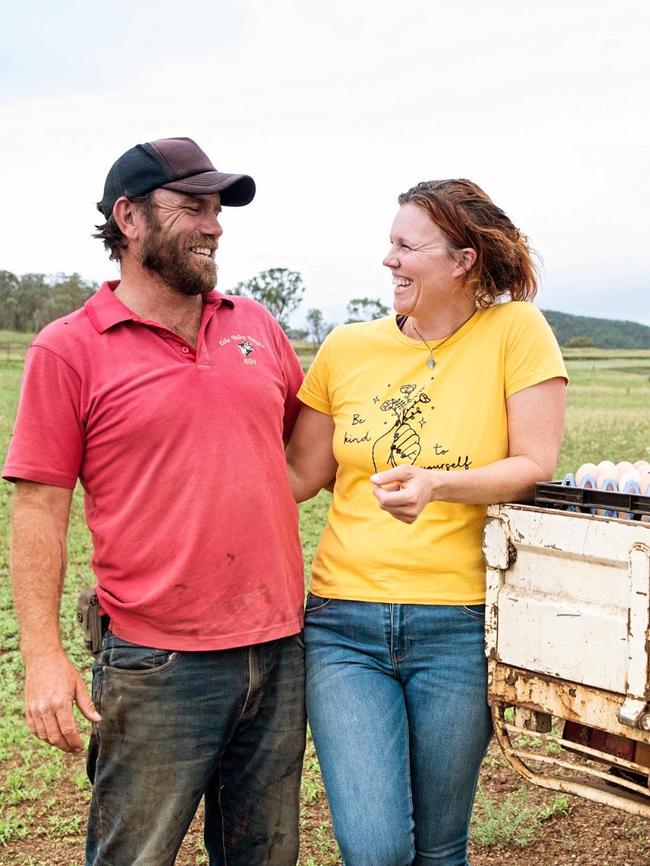
It’s a strategy that paid off: the family now supply their produce both to customers via a farmgate online sight, the on-farm meat house, and deliver product to clients in metro regions. There are pros and cons to being a first-generation producer, Mr Breen said, and encouraged new producers to write and stick to a wholistic management plan for on-farm objectives and principles.
“What’s lovely about being first generation is we’re not limited by the expectations on what we produce, and how we produce it, and why,” Mr Breen said.
“We can create and make mistakes ourselves.
“The challenge is there’s no resource I can tap into. Perhaps multi-generational farms don’t appreciate the knowledge they have.”
SCOTT CARTER, CORINELLA VICTORIA – HORTICULTURE
Having grown up on a dairy farm in New Zealand, first-generation blueberry farmer Scott Carter was aware of the challenges that agriculture can present to even the most seasoned producer.
But his drive and passion for the sector saw him and his wife, Allison, buy a farm in Bass Coast’s Corinella, and establish White Cloud Farms in the midst of Covid.
“I tell you, it was the best thing we ever did, because where we are lifestyle blocks went through the roof and we got in just in time,” Mr Carter said.
“It was the perfect property, it was an old flower farm, it was very run down but had a 50 megalitre dam, it had structural steel and a big shed … it needed a lot of love but it was the bones of what we needed.”
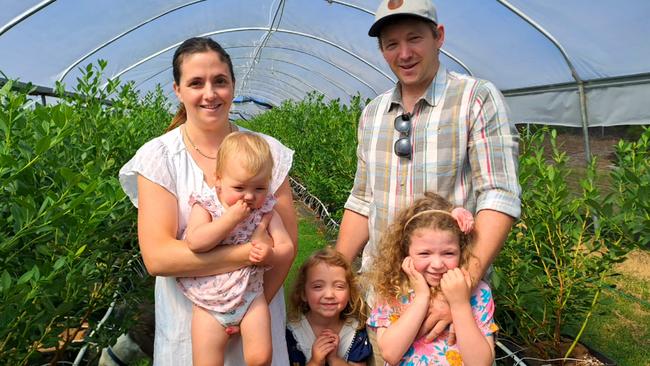
As first-generation producers, the Carters needed capital in order to invest in quality infrastructure while establishing the farming operation.
It’s a move that, thanks for a $300,000 Regional Investment Corporation loan, further topped up by a $400,000 grants courtesy of the Coles Nurture Fund.
“The loan allowed us to get everything we needed to get a good job of quality, to improve the land, the driveway, we got new trays and trolleys, and cool rooms which were just what we needed to get fruit temperatures down and we have great quality because of that,” Mr Carter said.
“The Nurture Fund is going towards several things including sustainability, upgrading our irrigation, and doing some trials around storing fruit to supply in a later window.”
White Cloud produces about 40 to 50 tonnes of blueberries off almost 2ha of land.
“It is very productive, if you know how to do hydroponics really well, and with roughly 10 years experience it can be a good use of land.”
He said despite his successes on farm, it was important to acknowledge the difficulties first generation producers faced.
“There’s lots of talk about young people wanting a home, and not a lot about young people trying to own farm land,” Mr Carter said.
“There are big barriers to entry, especially in berry production where it’s quite intensive. That can’t be understated. If you look at the demographics of farmers, there are a lot of older farmers leaving industry, and smaller younger farmers falling out the backdoor. Whether it’s a platform to lease to buy, or equity support in farms, there need to be pathways to owning your own land and farm.”
BEC WHARRAM, WESTERN AUSTRALIA – LIVESTOCK
From a beachside upbringing in Perth, Western Australia, to running one of Canada’s largest cattle ranches, Bec Wharram’s foray into agriculture was unconventional.
But time spent on a family friend’s farm growing up fostered a love of farming, and an appreciation for country life.
“Here we could help out on the farm, ride quad bikes, hunt and help feed stock. This really accelerated my love for agriculture,” Ms Wharram said.
Their journey to farming saw them working as farm hands on a 28,328-hectare operation after finishing university, before running their own 16-hectare property.
But the couple made the decision to sell their operation and move to Canada for two-and-a-half years to work on one of Canada’s largest cattle ranches.
“What an experience,” Ms Wharram said.
Today, the couple run a sheep operation across 40 hectares of land between Toodyay and Northam in the Western Australian wheatbelt, under the banner Out West Country.
They run their enterprise on Ms Warren’s father’s 40-hectare property, which they have turned into their farming operation and work while searching for additional leased country to expand into cattle and eventually purchase their own land.
“We plan on staying here, running sheep, and eventually leasing additional land until we purchase our own large farm nearby,” Ms Wharram said.
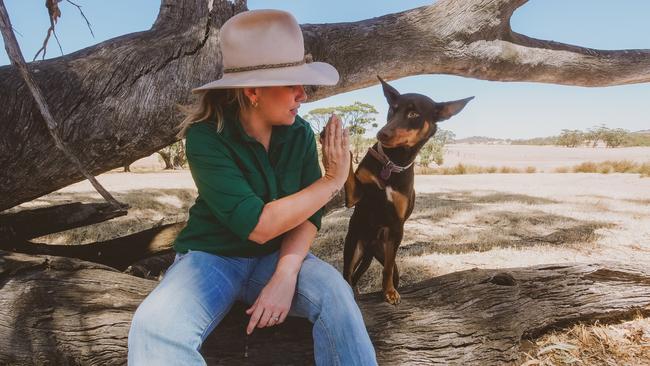
The biggest barrier to first generation farming, Ms Wharram said, is money.
“To purchase enough acreage to even run a hobby harm, you need a very large down payment,” Ms Wharram said.
“This is where leasing land and building your equity up that way can pay off when it’s time to buy your own farm.”
Ms Wharram has encouraged others with a passion for the industry to get involved, to “get out there and give it a go”, no matter what barriers they may face.
“Gaining experience and knowledge in the agriculture industry is easily done now, with the technology we have today,” she said.
“There are so many Facebook groups and job boards dedicated to farm work across Australia. I’ve found it fairly easy to find work, even back when I had barely any experience. A lot of farmers are happy to train someone up if they work hard, and are keen to learn.”
CAM GRIFFIN, QUEENSLAND – LIVESTOCK
This first-generation farmer had no access to family-owned land, nor a succession plan.
But what he did have was a dream, and the gumption to pursue it.
Cam Griffin has pursued an interest in sustainable grazing practices and land management by acquiring leases of disused farmland upon which he renovates pastures and builds biodiversity with his fledgling herd of cattle, under his business Binowee Family Grazing.
It’s a unique system which allows for dynamic decision making and flexibility in the face of changing seasonal conditions and variable market prices, according to Cam.
His enterprise is now spread across more than 81 hectares of leased country, running 60 cattle, mostly British-breed, across four properties at Moffatdale in the South Burnett region of Queensland.
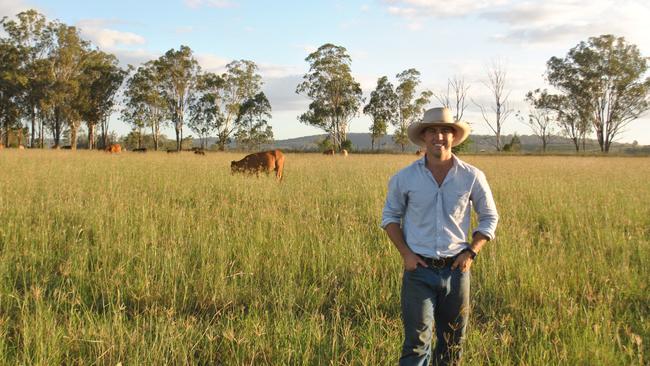
“Getting access to farmland is only getting harder with the price of land consistently rising and the fact that its value no longer reflects its productivity, Mr Griffin said.
Mr Griffin’s business model works by identifying undervalued blocks of land in his region, and approaching landowners.
“Maybe they were just blocks of land sitting idle … (I’d drive) around the area as much as I could trying to identify them, then I’d go door knocking and tell (owners) about what I am doing,” Cam said.
“I got one initial lease block and from there I was able to leverage that, and say to these potential landowners this is what I’m doing, the farming techniques I’m using, and whether they might be interested in leasing out their land.”
Keeping his eyes on the future, goals for the operation include working to host a bull sale via Instagram, and to continue to grow his own herd of breeding stock, while building on his reputation for pasture renovation.





